
An Imprint of Simon & Schuster, Inc.
1230 Avenue of the Americas
New York, NY 10020
www.SimonandSchuster.com
Copyright 2018 by Lucy McBath
All rights reserved, including the right to reproduce this book or portions thereof in any form whatsoever. For information, address Atria Books Subsidiary Rights Department, 1230 Avenue of the Americas, New York, NY 10020.
First 37 INK/Atria Books hardcover edition September 2018
 and colophon are trademarks of Simon & Schuster, Inc.
and colophon are trademarks of Simon & Schuster, Inc.
For information about special discounts for bulk purchases, please contact Simon & Schuster Special Sales at 1-866-506-1949 or .
The Simon & Schuster Speakers Bureau can bring authors to your live event. For more information, or to book an event, contact the Simon & Schuster Speakers Bureau at 1-866-248-3049 or visit our website at www.simonspeakers.com.
Interior design by Michelle Marchese
Jacket design by Math Monahan
Jacket photograph by Chad Griffith/Dayreps
Library of Congress Cataloging-in-Publication Data is available.
ISBN 978-1-5011-8778-0
ISBN 978-1-5011-8780-3 (ebook)
To Jordan, whose eye is on the sparrow and I know he watches me.
To Curtis, who walks in faith beside me.
To my family, who never lets me fall.
Tell the priests who carry the ark of the covenant: When you reach the edge of the Jordans waters, go and stand in the river.
Joshua 3:8 NIV
INTRODUCTION
In Guns We Trust
IN THAT DARKENED AUDITORIUM, I was one of a few brown faces among the mostly white evangelicals filling the seats around me. Not for the first time, I wondered why so few of the faith congregations I spoke to reflected the multihued family of God. I was in Columbia, South Carolina, for a screening of the award-winning documentary The Armor of Light . This deeply provocative film wrestles with theological questions of guns and faith, and features a pro-life white evangelical minister, and me, an African American mother grieving the loss of my only son to gun violence.
The Reverend Rob Schenck and I had been asked to participate in a panel discussion following the screening, along with Abigail Disney, the filmmaker who brought us together. As the opening credits rolled and a haunting score filled the theater, I silently asked God to speak through me that night, and to open my listeners hearts to his message. Twenty-five minutes later, my body clenched against a fresh onslaught of pain as I watched myself on-screen: I was talking about my son, Jordan Russell Davis, who at seventeen had been fatally shot at a Jacksonville, Florida, gas station by a white man who thought the rap music he and his friends were playing on their car stereo was too loud.
As Jordan lay dying, the shooter drove away from the scene. We would soon discover that he was a licensed gun owner in the state of Florida, and a member of the National Rifle Association (NRA), which likely meant he took it as an article of Second Amendment faith that the blood hed just spilled would soon be washed clean by a law called Stand Your Ground. He knew that under the statute, all he had to prove was that he believed the four black boys in the red Dodge Durango would do him harm. That claim alone gave him the right to use lethal force rather than to seek de-escalation and retreat.
There was no question my sons killer was versed in the particulars of this statute, and the way it could provide legal cover after the fact. The leadership of the NRA had assertively educated its members to drum up support for the laws inaugural passage in Florida in 2005. Versions of the legislation have since been adopted in twenty-three more states, leading in every case to a spike in deadly shootings. In Florida, for example, justifiable homicide cases tripled after the passage of Stand Your Ground, and in Georgia, they increased by 83 percent.
The NRAs response to this increase was to offer up to $150,000 for criminal defense reimbursement, and up to one million dollars in liability protection should its members face legal reprisals after invoking the shoot-first law. And so, when arrested the next day, my sons killer immediately told police hed felt threatened by Jordan and his friends. Despite the boys being unarmed, the shooter insisted hed fired on them in self-defense.
I will never forget the way my breath left my body at the moment I grasped that the value of a black boys life had been part of the shooters split-second calculation before he reached for his gun. Suddenly, it was crystal clear to me what my son had been up againsta man who believed he could shoot to kill based on nothing more than a feeling, because he reckoned the states gun law would absolve him in the death of an African American boy. No doubt he was rolling the dice that, if charged, his fate would lie in the hands of jurors who harbored the same deep-rooted biases and fears as he didprejudices as old as America itself.
It was my opposition to the Stand Your Ground law that had led to my initial meeting, the one that would be filmed, with Rev. Rob Schenck. As chairman of the Evangelical Church Alliance, Rob had been unable to reconcile the pro-life stance of the Christian Right with its intense pro-gun fervor. He would eventually break with the evangelical leadership over its position on guns, but at the time we were making the film that hadnt happened yet. His theological struggle was the subject of our taped discussion as wed sat in his rock-walled garden in the nations capital and shared our respective encounters with gun violence.
Abigail Disney, founder of the feminist nonprofit Peace is Loud, kept the cameras rolling as we reflected on Americas flawed gun policies, and the culture of fear and tribal antagonism that lobbyists for the nations perilously lenient gun laws had cultivated. I could not help the tears as I observed to Rob that for so many Americans, guns had become a substitute for trust in Gods protection. As Christians, we have replaced God with our guns, I told him. Instead of looking to God righteously, as the Protector, were looking at our guns as the protector. And thats not the word of God.
My comment stunned the minister into silence, because he knew as well as I did that the largest and most zealous gun-owning demographic in America was his own flockwhite evangelical Christiansalong with less religious whites who held strong right-wing political views. They were, in a sense, political evangelicals, unshakably committed to the party of Reagan.
Now, sitting with the reverend in a darkened theater in Columbia, South Carolina, I contemplated how one squared the commandment Thou shalt not kill with the readiness to take a human life. I weighed the ironies. Earlier, I had seen a man in a T-shirt emblazoned with the words IN GUNS WE TRUST . I felt exactly the opposite. Surrendering my personal safety not to guns, but to God, felt like the ultimate security. Perhaps my own lack of fear had something to do with the fact that the very worst day of my life had already come and gone, and somehow, I was still standing. Even so, I believed my Heavenly Father would protect me always, no matter the threats of death or sexual violence that I so often received as an advocate for commonsense gun lawsand despite the bullets that had pierced the flesh of my beloved child.


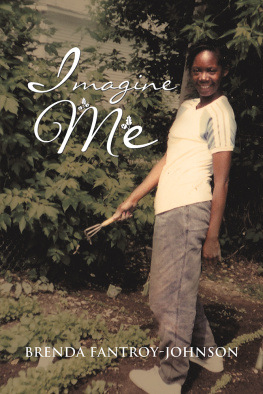
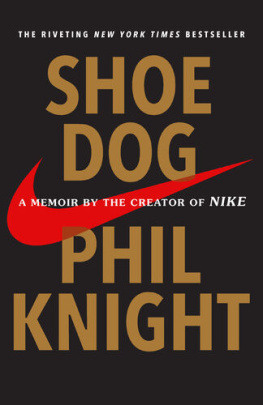
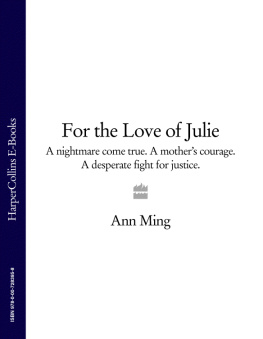
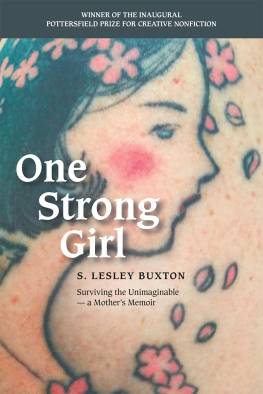
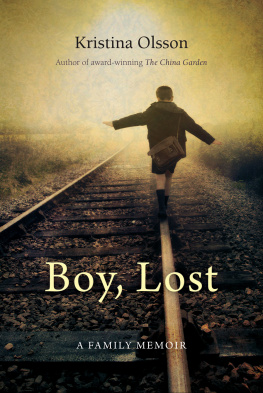
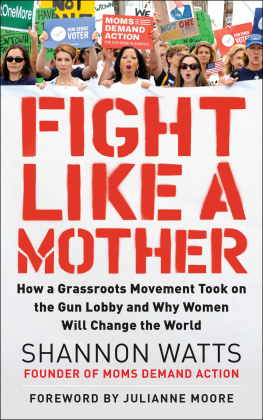
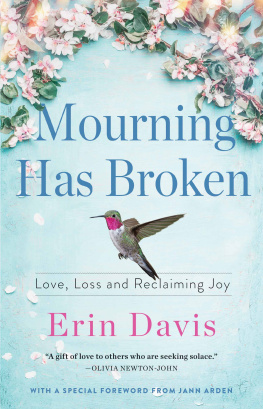
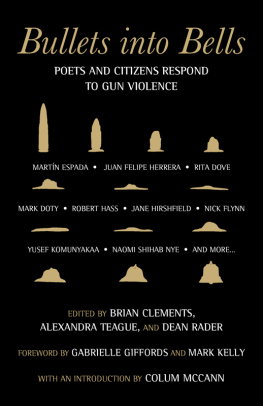
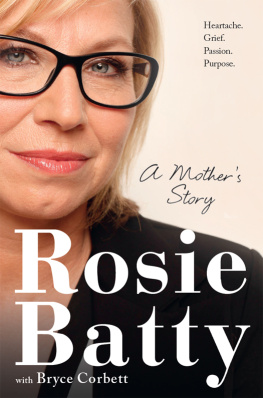
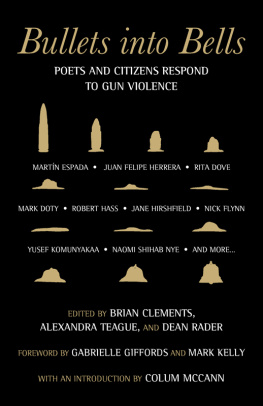


 and colophon are trademarks of Simon & Schuster, Inc.
and colophon are trademarks of Simon & Schuster, Inc.